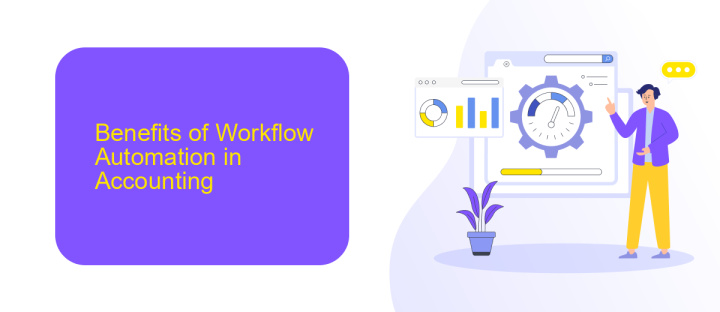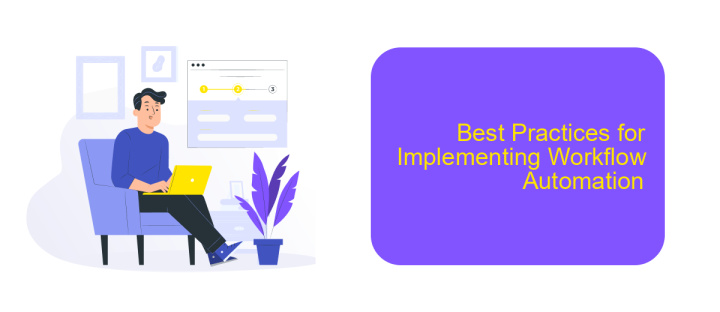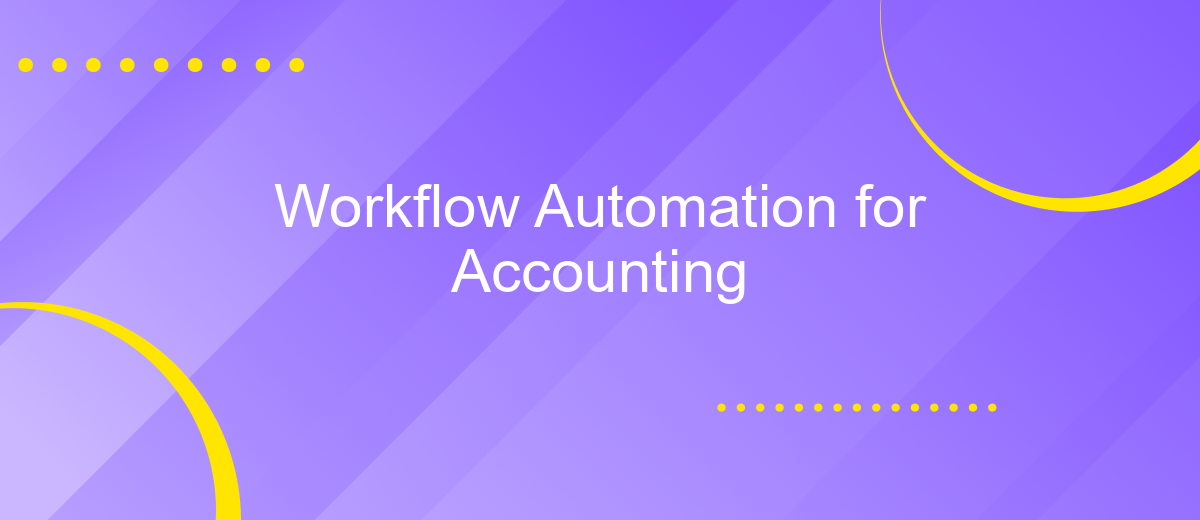Workflow Automation for Accounting
Workflow automation for accounting is revolutionizing the way financial departments operate. By automating repetitive tasks such as data entry, invoice processing, and financial reporting, businesses can significantly reduce errors, save time, and increase efficiency. This article explores the benefits of workflow automation in accounting, its key features, and how it can transform your financial operations for the better.
Introduction to Workflow Automation
Workflow automation in accounting streamlines repetitive tasks, reduces errors, and enhances productivity. By automating processes, accountants can focus on more strategic activities, thereby adding greater value to their organizations.
- Elimination of manual data entry
- Improved accuracy and compliance
- Faster processing times
- Enhanced data security
One of the key tools for achieving workflow automation is ApiX-Drive. This service enables seamless integration between various accounting software and other business applications. By using ApiX-Drive, organizations can automate data transfers, synchronize information in real-time, and ensure that all systems are up-to-date without manual intervention. This results in a more efficient and reliable accounting process.
Benefits of Workflow Automation in Accounting

Workflow automation in accounting significantly enhances efficiency by streamlining repetitive tasks, such as data entry, invoice processing, and financial reporting. By automating these processes, accountants can focus on more strategic activities, reducing the likelihood of human errors and improving overall accuracy. This leads to faster turnaround times and more reliable financial data, which is crucial for informed decision-making and maintaining compliance with regulatory requirements.
Moreover, integrating various accounting systems and tools through platforms like ApiX-Drive allows for seamless data flow and synchronization, eliminating the need for manual data transfers. This not only saves time but also ensures that all financial information is consistently up-to-date across different platforms. ApiX-Drive simplifies the integration process, enabling businesses to connect their accounting software with other essential business applications effortlessly. As a result, workflow automation fosters a more cohesive and efficient accounting environment, ultimately contributing to better financial management and business growth.
Key Features to Look for in Workflow Automation Software

When selecting workflow automation software for accounting, it's crucial to consider features that will enhance efficiency and accuracy. Proper automation can significantly reduce manual tasks and errors, allowing accountants to focus on more strategic activities.
- Integration Capabilities: Ensure the software can seamlessly integrate with your existing accounting systems and other business tools. Services like ApiX-Drive can facilitate these integrations, making data transfer smooth and reliable.
- Customization Options: Look for software that allows you to tailor workflows to fit your specific accounting processes and needs.
- Real-Time Reporting: The ability to generate real-time financial reports is essential for timely decision-making and maintaining financial health.
- Security Features: Given the sensitive nature of financial data, robust security measures such as encryption and user access controls are non-negotiable.
- User-Friendly Interface: A simple and intuitive interface can reduce the learning curve and improve overall productivity.
By focusing on these key features, you can select workflow automation software that not only meets your accounting needs but also enhances overall operational efficiency. Investing in the right tools will ultimately lead to better financial management and business growth.
Best Practices for Implementing Workflow Automation

Implementing workflow automation in accounting requires careful planning and execution to ensure maximum efficiency and accuracy. Start by identifying repetitive tasks that consume significant time and resources. These tasks are prime candidates for automation and can offer immediate benefits when streamlined.
Next, evaluate the tools and software available for workflow automation. Choose platforms that integrate seamlessly with your existing accounting systems. For example, ApiX-Drive can help connect various applications, making data transfer and synchronization effortless. This ensures that your automated workflows are always up-to-date and accurate.
- Identify and prioritize tasks for automation.
- Select compatible automation tools and software.
- Ensure seamless integration with existing systems.
- Regularly monitor and update automated workflows.
- Train staff to manage and troubleshoot automation tools.
Regular monitoring and updates are crucial for maintaining the effectiveness of your automated workflows. Periodically review the performance of your automation tools and make necessary adjustments. Additionally, provide ongoing training for your team to ensure they are proficient in managing and troubleshooting these systems. This will help you maximize the benefits of workflow automation in your accounting processes.
Case Studies and Examples of Workflow Automation in Accounting
One compelling case study of workflow automation in accounting is the implementation of automated invoice processing at a mid-sized manufacturing company. By integrating their accounting software with an OCR (Optical Character Recognition) system, they were able to automatically capture invoice data from scanned documents. The data was then automatically entered into their accounting software, significantly reducing manual data entry errors and processing time. This automation not only improved accuracy but also allowed the accounting team to focus on more strategic tasks.
Another example is a small accounting firm that used ApiX-Drive to streamline their client data integration. By connecting various accounting tools and client databases through ApiX-Drive, the firm was able to automate the transfer of financial data between platforms. This eliminated the need for manual data entry and reduced the risk of errors. The integration also provided real-time updates, ensuring that the firm always had the most current financial information available, thereby enhancing their decision-making capabilities.


FAQ
What is workflow automation in accounting?
How can workflow automation benefit my accounting processes?
Is it difficult to implement workflow automation in my accounting department?
What types of accounting tasks can be automated?
How secure is workflow automation for accounting?
Do you want to achieve your goals in business, career and life faster and better? Do it with ApiX-Drive – a tool that will remove a significant part of the routine from workflows and free up additional time to achieve your goals. Test the capabilities of Apix-Drive for free – see for yourself the effectiveness of the tool.

